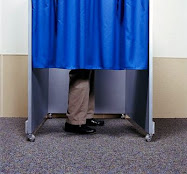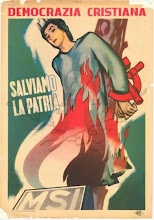Didn't the Italians just have an election?
Two years ago.
So why are they voting again?
Last time, they elected a centre-left government headed by the former EU commission president Romano Prodi. But he had only a tenuous majority in parliament, and eventually lost a vote of confidence on January 24.
Is he standing again?
No. His place as leader of the centre left has been taken by the former mayor of Rome Walter Veltroni. Last year, he became leader of a new movement that unites the two biggest parties in Prodi's alliance, made up largely of ex-communists and the more progressive sort of Christian Democrat.
What are his chances?
Not good. Under Italian law, polls cannot be published in the final two weeks of campaigning , but the last ones we know of all gave Silvio Berlusconi a substantial lead.
Why?
Part of the answer is that Veltroni and his new Democratic party are running alone, without the support of the Marxists and Greens, who formed part of Prodi's alliance. (The idea was to present the electorate with a moderate option.) However, Berlusconi is also standing with a shrunken alliance. He lost the support of the more conservative Christian Democrats soon after Prodi lost power. The other part of the explanation is that many floating voters are fed up with the centre left.
Why?
One reason was impatience with the endless bickering within Prodi's broad alliance (another reason why Veltroni decided to go it alone). Then there was the government's disastrous failure to anticipate a string of crises, the latest and most dramatically visible being the Naples rubbish emergency. Another explanation for the unpopularity of outgoing government is that not only cracked down on tax evasion, but also increased tax rates. It helped get the public accounts back in order, but didn't exactly make Prodi popular.
So is Berlusconi promising to cut taxes instead?
You bet.
What about Veltroni?
Same thing. He's promising that, starting next year, he'll cut the rate of income tax by one per cent a year.
But doesn't Italy have huge that it's meant to be paying off?
Yes, indeed. The state owes more than its inhabitants produce in a year. Both contenders say they will cut the cost of the public administration (though, since they also have ambitious spending plans, that is unlikely to save much overall). In addition, though, they plan huge programmes of public asset sales which they claim will fund the tax cuts and leave something over with which to reduce Italy's debts.
Is there any difference at all between Berlusconi and Veltroni?
Their programmes are almost identical. Veltroni's Democrats put more emphasis on welfare spending. Berlusconi's Freedom Folk stress the need for investment in infrastructure. But the similarity of their programmes has made for a lacklustre campaign and helps explain why Veltroni has scarcely eroded Berlusconi's lead.
It sounds as if Berlusconi is home and dry ...
Not necessarily. Italy has a bizarre electoral system (which Berlusconi himself introduced). It gives the party with most votes a bonus of seats in the lower house to guarantee it an overall majority. But, in the upper house, the Senate, similar bonuses are doled out region by region. This makes for slim majorities like the one that doomed Prodi. It is even possible that Berlusconi could have a majority in the chamber of deputies while the centre left controlled the upper house.
What then?
He would probably try to form a "grand alliance" to make the country governable.
Is that why he has conducted such an uncharacteristically uncontroversial campaign?
Almost certainly.



















